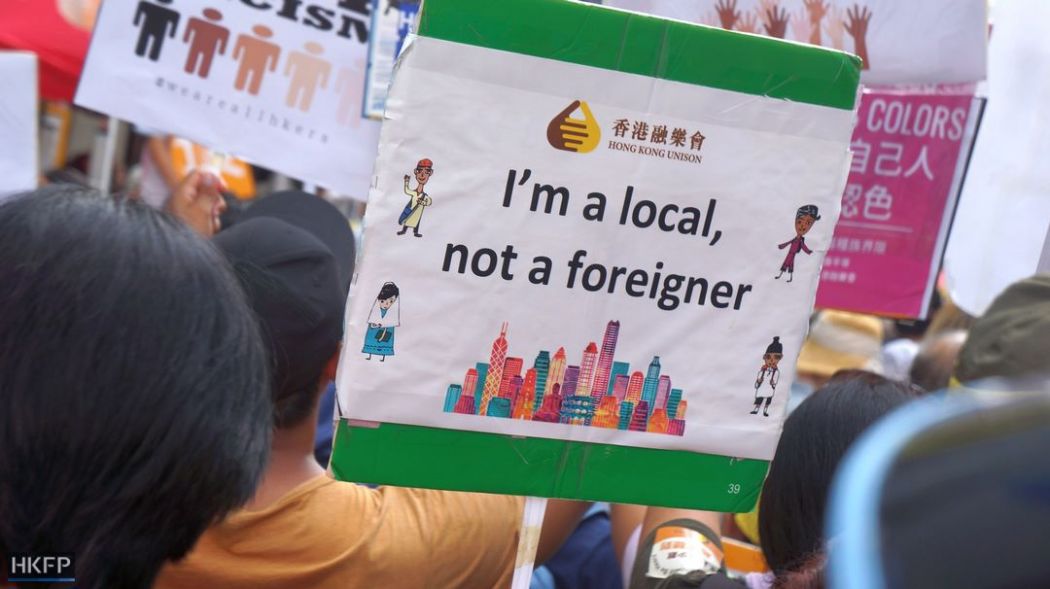Almost three-quarters of Hong Kong’s Chinese-language teachers failed to attend training sessions on teaching Chinese as a second language, the government’s Audit Commission has found, raising concern that not enough is being done to support ethnic minority students.
Of the 13,794 Chinese-language teachers in Hong Kong, 72 per cent did not attend the sessions organised by the Education Bureau between 2014 and 2020, the report found. Of the city’s 988 schools, 28 per cent had no teachers at all who attended. Among those who did so, the hours were “on the low side,” a report by the commission said.

The Education Bureau has not laid down official training requirements and the training sessions are voluntary.
“When you teach non-native speakers Chinese, you need to employ teachers that are trained. Our schools might not be doing this,” Arfeen Bibi, an English teacher at a local school and recipient of last year’s Diversity List, told HKFP.
“The schools also have the autonomy to tailor-make the language curriculum for non-Chinese speaking students. Not having a clear set of guidelines doesn’t help. It doesn’t prepare students to transfer them to the labour market.”
The report urged the Education Bureau to visit schools more often to monitor their progress. Out of 283 primary, secondary and special schools that receive government funding to help non-Chinese students, 15 per cent had no such visits between 2014 and 2016, according to the report.
“The EDB are not making regular visits to these schools, and until they do and speak to the staff and students themselves, they will not understand the needs of ethnic minority students,” said Bibi. “Just giving money to these schools will not solve all the issues faced by the community.”
The audit recommended that the Education Bureau visit schools in a more timely manner, and asked it to consider setting training requirements for primary, secondary and special school Chinese-language teachers. The Secretary for Education said the bureau agreed with the points raised in the report.

NGOs that work with minority groups say that this lack of support is a key barrier to greater integration. As a result, ethnic minority students face difficulties when applying to university and for jobs.
‘Lack of accountability’
In 2016, only one out of 1,500 job advertisements surveyed by Hong Kong Unison, an NGO that works with minority groups, explicitly mentioned that the position did not require Chinese-language proficiency.
“We hear from ethnic minority parents that their children do not receive adequate support in Chinese learning, especially in mainstream kindergartens,” said Phyllis Cheung, Executive Director of Hong Kong Unison, an NGO that offers support to ethnic minority residents. “Perhaps schools do not know how to use the [government grant] effectively and there were many gaps when the it was introduced.”

Cheung told HKFP that there is a “lack of accountability, checks and balances” on the part of the bureau: “Unison has heard from teachers that the [grants] are not always used specifically for Chinese learning for ethnic minority students… The purpose of supervisory visits from the EDB is not only to monitor the use of these funds, but offer support to schools and identify good practices to be shared with other schools.”
Last year, a poll commissioned by the Equal Opportunities Commission found that more than 93 per cent of school principals reported difficulty in recruiting teachers with the skills to teach Chinese as a second language. Some 95 per cent of the teachers said the Chinese-language exercises were too demanding for ethnic minority students.
“Our students are smart and worthy, and they need more support than just more funding,” Bibi said.
Support HKFP | Policies & Ethics | Error/typo? | Contact Us | Newsletter | Transparency & Annual Report | Apps
Help safeguard press freedom & keep HKFP free for all readers by supporting our team

LATEST FROM HKFP
HKFP has an impartial stance, transparent funding, and balanced coverage guided by an Ethics Code and Corrections Policy.
Support press freedom & help us surpass 1,000 monthly Patrons: 100% independent, governed by an ethics code & not-for-profit.










